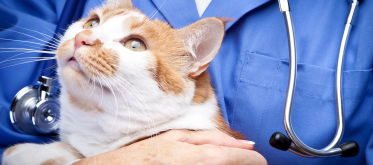
Examining marketing authorisation applications
Products submitted to ANSES for authorisation
- Veterinary medicinal products: substances or compositions presented as having properties for treating or preventing disease in animals, or that may be administered for the purpose of modifying functions, making a medical diagnosis or for euthanasia (see Article 4 of Regulation (EU) 2019/6).
- Biocides: substances or preparations intended to destroy, deter or render harmless organisms considered harmful such as fungi, bacteria, viruses, rodents, insects, etc. This family includes many products used in both industry and everyday life, such as disinfectants, insecticides, repellents, wood treatment products, preservatives, paints, etc.
- Plant protection products: preparations such as herbicides, fungicides, insecticides and biocontrol products designed to protect plants and the produce from their cultivation. Each preparation consists of one or more active substances and co-formulants.
- Fertilisers: products intended to maintain or improve plant nutrition or the physical, chemical and biological properties of soils. They include fertilisers and soil improvers.
- Growing media: products such as soil-based compost intended to serve as growth media for certain plants and enable them to be in contact with the solutions required for their growth.
Risk assessment and examination of marketing authorisation applications
Different European regulations govern each family of products for which ANSES is responsible for assessing risks and examining MA applications. These regulations set out all the information that must be included in the MA application dossiers, as well as the criteria and methodologies used to assess them. To assess MA applications, ANSES relies on its collective scientific expert appraisal process and a specific internal organisation.
For each product MA application, ANSES assesses the efficacy, and the possible risks to human and animal health and to the environment. On the basis of this scientific assessment, it decides whether or not to issue MAs, which set out the conditions for use and for protecting users. All these decisions are published and accessible on the ANSES website, along with the assessment findings.
ANSES has set up its organisation to ensure that scientific assessment is performed independently of the examination of MA applications. In practical terms, this work relies on two different departments. In addition, activities relating to veterinary medicinal products are the responsibility of the French Agency for Veterinary Medicinal Products within ANSES (ANSES-ANMV).
As with all the risk assessments it carries out, ANSES relies on committees of external experts, appointed after a public call for applications. They are bound by the ethical framework set up by the Agency.
Better understand the steps involved in granting MAs for plant protection products (PDF)
The platform for dialogue
Created in 2018, the platform for dialogue on MAs meets several times a year, bringing together the associations and professional and trade union organisations working on these topics. It is a key forum for discussing all issues relating to the assessment and impact of these products, within the scope of ANSES's missions.
ANSES makes strong recommendations at national and European level to reinforce the assessment frameworks and regulations for products subject to authorisation. We also take part in the development and revision of methods to safeguard the health of populations, workers and ecosystems including bees.
Dedicated vigilance schemes for these products
In order to monitor possible health and environmental effects from the use of these products, ANSES coordinates various vigilance schemes. The Agency draws on the lessons learned from these vigilance schemes and its research and scientific expert appraisal work to make proposals to review the conditions for use or even the authorisations issued for the products. It can also suggest regulatory changes at national and European level.




